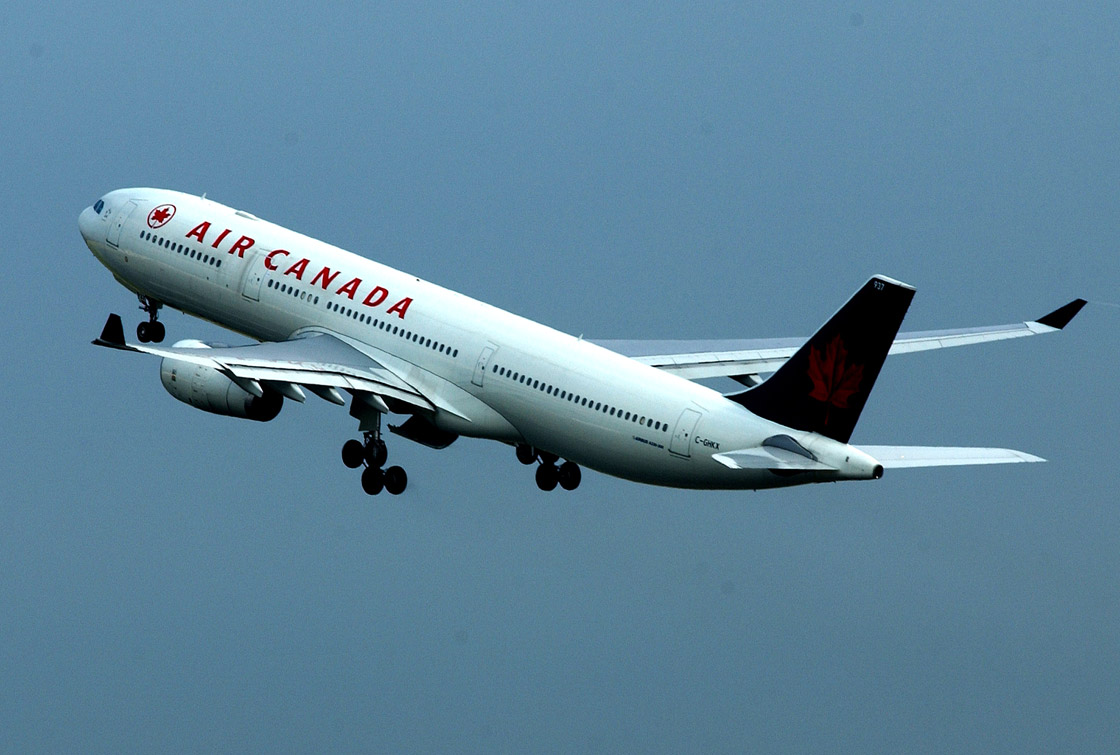MONTREAL – Air Canada’s proposed compensation for passengers bumped off domestic flights is “unreasonable,” says a consumer advocate who successfully convinced the Canadian Transportation Agency that passengers are entitled to higher payments.

Gabor Lukacs urged the agency to instead adopt U.S. rules or the proposal he submitted.
“Air Canada’s proposed compensation scheme fails to strike a balance between the rights of passengers and Air Canada’s statutory, commercial, and operational obligations,” he wrote in a 47-page submission on Thursday.
The former University of Manitoba math professor has suggested passengers should be compensated between $200 and $800 depending on the length of delay. Delays of less than two hours would prompt the minimum compensation. Bumped passengers who are delayed two to six hours would get $400 and the maximum would be given for longer delays.
In the United States, twice the airfare up to a maximum of US$650 is paid for delays of one to two hours and four times the fare to a maximum of US$1,300 is paid for delays exceeding two hours.
Air Canada (TSX:AC.B) proposed last week that passengers should be entitled to between $100 and $800 in compensation depending on their airfare and length of delay.
The airline proposed that passengers who are delayed from domestic flights for six hours or more be eligible for 200 per cent of the one-way airfare – up to a maximum of $800.
It also proposed that those delayed between one to six hours be eligible for 100 per cent of the one-way airfare – up to a maximum of $400 – while it would pay between $100 to $150 to those delayed for less than an hour.
The compensation would be in cash or in some cases higher amounts in travel vouchers.
Air Canada successfully argued that it can overbook and deny compensation in limited cases when it has to switch to smaller aircraft for operational and security reasons that are beyond its control.
However, the agency ruled Air Canada’s 12-year-old bumping payout rate of $100 cash or a $200 travel voucher is outdated and doesn’t reflect the current price of airline tickets, accommodation and other incidental expenses.
It asked the airline to submit reasons why it shouldn’t impose Lukacs’s proposal or the scheme used in the U.S. Air Canada could have appealed to Federal Court, but elected not to do so.
Lukacs said the airline’s proposal provides lower cash compensation in most cases than the two alternatives.
It would calculate compensation excluding all taxes and airport fees and considers delays between one and six hours causing the same inconvenience and damage.
Lukacs concedes that paying compensation will cost Air Canada, but said the impact isn’t significant because the airline says only 0.09 per cent of domestic passengers are affected by denied boarding.
“Overselling flights, however, is not an act of God that is outside of Air Canada’s control, but rather part of Air Canada’s business model, and as such, Air Canada has full control over it,” he wrote, adding that the airline can decrease its exposure by decreasing oversell rates.
Its domestic rival WestJet Airlines (TSX:WJA) doesn’t overbook its flights.
Lukacs said compensation should be paid in cash because many passengers may not be aware that vouchers have many restrictions. If the agency allows the airline to pay vouchers, he said their value should be higher than Air Canada has proposed.

Comments